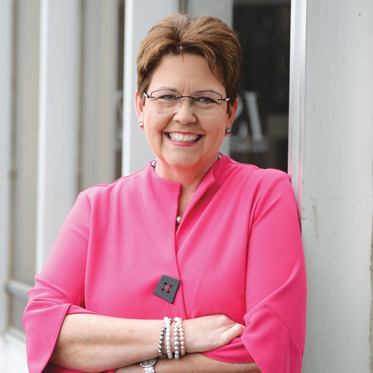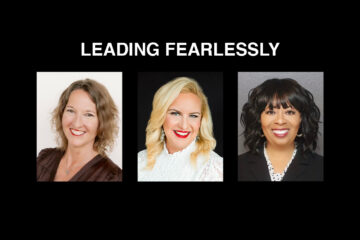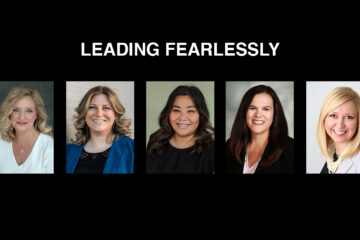By Suzanna de Baca, president and CEO, Business Publications Corp.

In 1900, only 6% of married women worked outside the home, according to the U.S. Census Bureau. Without the ability to earn money of their own or the right to vote, women like my grandmothers were reliant on men for their economic freedom as well as any decisions about their overall well-being. No wonder women in that era marched in the streets, petitioning for the ability to participate in the political process and workforce.
Thankfully, many men also advocated for women, recognizing that economic opportunity and representation are cornerstones on which our country was founded.
Vice President Kamala Harris has said that the status of women is the status of democracy. A new report on the state of women in the labor market in 2023 from the Center for American Progress (CAP) echoes this sentiment, saying: “Work is essential to women’s economic security, social equality, and a robust and sustainable economy for all.” While some women can perceive work as a burden, and indeed it may be in many cases, the ability to earn money is critical to not just our economic status, but our freedom.
Following the second Summit for Democracy in March, the White House released a briefing on the status of women in which it asserted the ability of women and girls to participate safely, freely and equally in political life and in society is a defining feature of democracy. A statement said, “Research shows that the status of women and the stability of nations are inextricably linked, and that societies that foster gender discrimination and allow oppressive gender norms to flourish are more likely to be unstable.”
Today, three-quarters of women between the ages of 25 and 54 are employed. Participation of women in the labor force has reached new highs, but numerous barriers to our advancement persist. The CAP report reveals that women are still paid less than men, with the pay gap worsening with age. It also highlights occupational segregation as a barrier, saying that before the pandemic, nearly 60% of women were employed in “just three sectors that also were those hardest hit by the pandemic: education and health; leisure and hospitality; and retail and wholesale trade.” Finally, the report indicates that caregiving disparities continue to hinder the advancement of women in the workplace.
It is critical that women continue to advocate for policy changes both at a federal and state level, as well as in the workplace, in order to reduce these barriers. Our future well-being depends on it.
I turned to several leaders and asked them: “What barriers to gender equity for women in the workplace do you see as the most critical to address?”

Michele Appelgate, director of marketing and communications, Iowa State University Ivy College of Business: Throughout my 35 years of professional experience, which includes newspaper reporting, public relations, crisis communication and higher education, one common barrier stands out: confidence. Many girls are taught to be polite. Be quiet. Don’t stand out. Don’t be pushy. Those lessons stick with you throughout your career. It’s a journey to learn new habits. If we didn’t grow up learning confidence, we must learn on our own. Find and connect with mentors and respected leaders who will support you.

Mary Jane Cobb, executive director, Iowa State Education Association: Representation matters. Women are underrepresented in the C-suite, boardroom, and in many professions. For decades women were limited in careers they could pursue, which is reflected in the distribution of women across the current workforce. We must be explicit in recruiting women of all races and backgrounds into an array of high-paying careers and emerging professions. Hiring and promotion processes should ensure women are afforded opportunities for advancement and growth. Employers can implement family-friendly workplace policies to empower women into leadership roles and mitigate the impact of the disproportionate amount of family and child care responsibilities borne by women.

Abby Delaney, senior vice president, marketing and communications officer, Bankers Trust: As a mother and someone in a demanding leadership role, the most critical barrier is access to affordable child care. Many families are paying significant portions of their income for care, which puts strain on their budgets. While I’ve been lucky to find and afford a reliable provider, many families I know can’t find spots in centers, deal with abrupt classroom closures, or are on endless waiting lists. We’ve all heard reports of the many day care closures over the last few years, which continues to be a top issue for working moms.

Renee Hardman, chief diversity, equity and inclusion officer and vice president of human resources, Broadlawns Medical Center: While there has been progress towards gender equality, we must acknowledge that we have miles to go for women to experience the success of our male counterparts. It’s difficult to single out which disparity is most critical, as each of them requires us to acknowledge the impact that it has on women’s ability to progress at the rate of men. The notion that women still face unequal pay, disparities in promotions, and sexism represents significant gaps that must be closed. The C-suite of many organizations is lonely for women, and today women still face microaggressions and often feel isolated in spaces where they are alone. Regardless, I remain hopeful.
I asked leaders: “What advice do you have for women who are seeking to advance despite continued disparities?”
Appelgate: Find a mentor you can lean on. I never had that opportunity, so I found a program where I could be a mentor for a young woman who is starting her career. It’s such a rewarding experience for both parties. Even if it’s not a formal mentor program, find a respected leader who can provide advice and good counsel as you grow and advance your career. Many women have created a path for us to follow. Ask them how they did it.
Cobb: Women who want to advance their careers need a team of support for their journey. A mentor can help acclimate you to the culture and climate in your workplace and provide insight into the work being done. A professional coach can partner with you in a creative process to help maximize your personal and career potential. A consultant can provide expert advice or information on a project, problem of practice or strategy. All of these resources can play a valuable role in your success. A less known but vitally important member of your team is a sponsor. A sponsor is willing to spend their political capital on your success. They will put your name forward for a high-stakes assignment or a promotion. They extend their network to you so that you can make key connections. As women advance in their careers, they need to look for opportunities to support other women; all of us benefit as one of us succeeds.
Delaney: Be an advocate for others. Give back to people who have helped you get to where you are, and pay it forward for other women who are rock stars in their roles. This is often a result of building strong and trusted relationships with people at many levels both within and outside of your company. I’ve been fortunate to have leaders and mentors who heard my voice, encouraged me to take on new challenges, or provided me with opportunities through these relationships.
Hardman: You are enough. Don’t let fear paralyze you. My advice to women is twofold. One is based on a program I founded for young girls titled “I Am Enough.” Women must never lose sight that despite our challenges or setbacks, we must believe within the core of who we are that “We Are Enough.” It is a mantra that I read out loud each morning. A second piece of advice is to “Do It Afraid.” Get out of your comfort zone and just do it. Doing it afraid builds resilience, confidence and a “can-do” attitude. I define FEAR as: Forward Thinking, Embracing Opportunity, Arriving Authentically and being Ready to Conquer.


